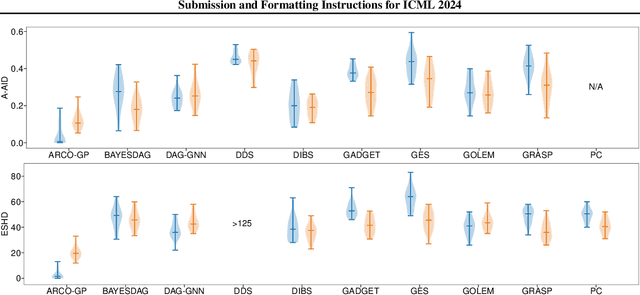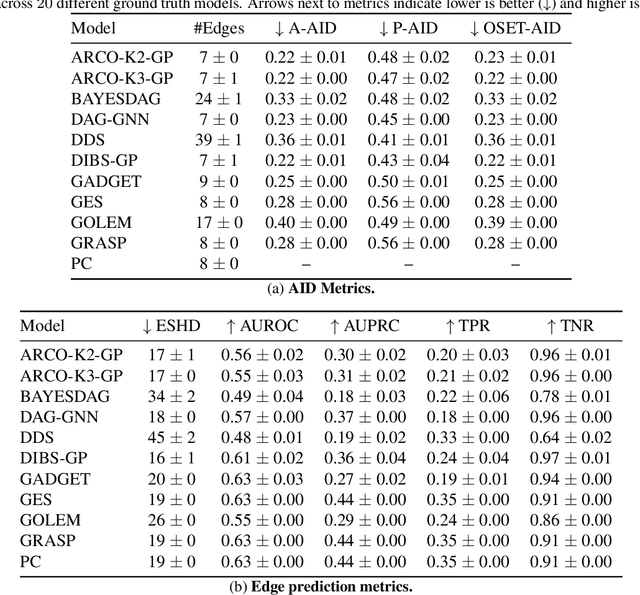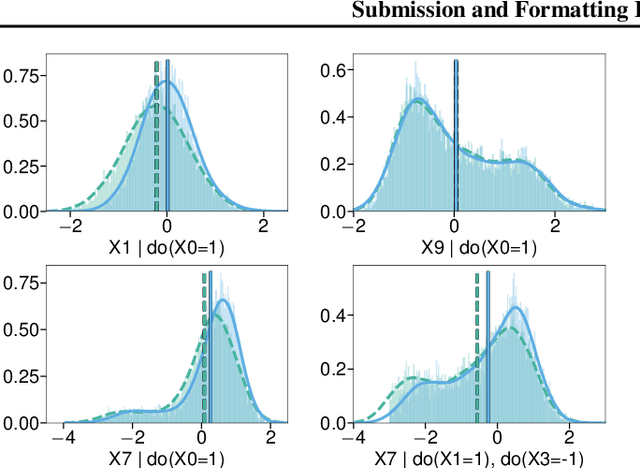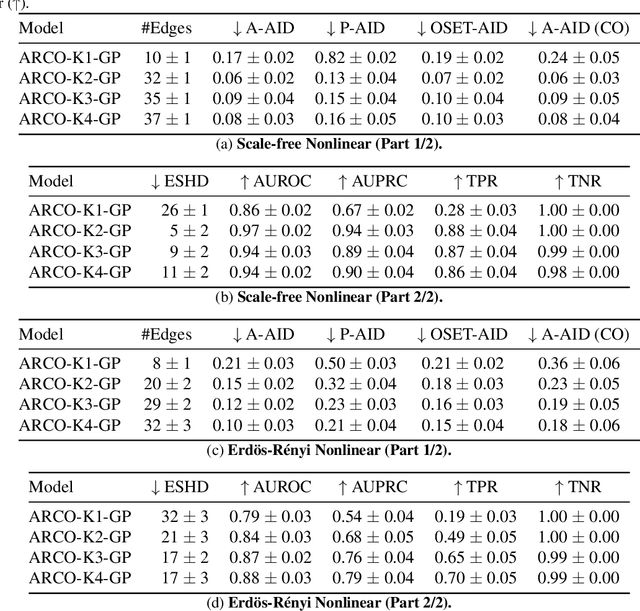Rao-Blackwellising Bayesian Causal Inference
Paper and Code
Feb 22, 2024



Bayesian causal inference, i.e., inferring a posterior over causal models for the use in downstream causal reasoning tasks, poses a hard computational inference problem that is little explored in literature. In this work, we combine techniques from order-based MCMC structure learning with recent advances in gradient-based graph learning into an effective Bayesian causal inference framework. Specifically, we decompose the problem of inferring the causal structure into (i) inferring a topological order over variables and (ii) inferring the parent sets for each variable. When limiting the number of parents per variable, we can exactly marginalise over the parent sets in polynomial time. We further use Gaussian processes to model the unknown causal mechanisms, which also allows their exact marginalisation. This introduces a Rao-Blackwellization scheme, where all components are eliminated from the model, except for the causal order, for which we learn a distribution via gradient-based optimisation. The combination of Rao-Blackwellization with our sequential inference procedure for causal orders yields state-of-the-art on linear and non-linear additive noise benchmarks with scale-free and Erdos-Renyi graph structures.
 Add to Chrome
Add to Chrome Add to Firefox
Add to Firefox Add to Edge
Add to Edge